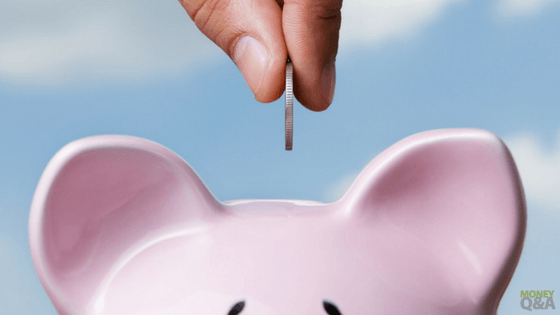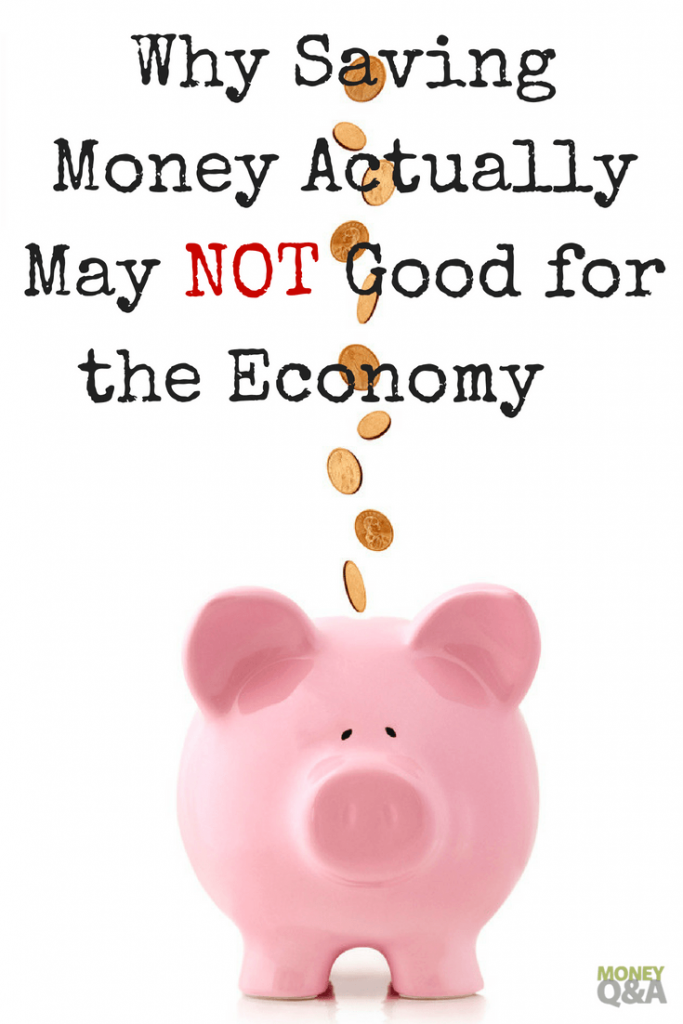The U.S. economy is booming right now, with unemployment rates at record lows, consumer spending rising at steady rates, new home construction rates skyrocketing, etc. Although economists are still concerned about things like the student loan debt crisis, rising rates of job automation, and the lack of affordable housing for low-income renters around the country, the American economy is performing its best since pre-2008 economic activity.
However, what goes up must come down at some point. An economy this hot can’t grow endlessly without some kind of burnout, whether that eventually involves mass defaults on student loans, another housing market crash, or some unforeseen economic crisis in the coming years. In both good and bad economic times, it’s important to remember a phrase coined by economic John Maynard Keynes: the paradox of thrift.
What is the Paradox of Thrift?
The “paradox of thrift” refers to the idea that consumers choosing to save money instead of spending it can hurt economic growth, which is why consumers are often incentivized to put money into investment accounts to get higher rates of return in comparison to stuffing cash under the mattress or putting the money into low-interest savings accounts.
The paradox of thrift is when consumers choosing to save money instead of spending it can hurt economic growth. But, saving money isn’t the best thing for the economy as a whole. The US needs you to spend money. It truly is a paradox.
If you’re wondering what impact the “paradox of thrift” could have on the U.S. economy in the future, we must consider 3 major things consumers typically do with their money: spend it, save it, or invest it.
Spending Money
Economic indicators are usually more favorable when consumer spending is high by the Bureau of Economic Analysis’ standards. From a macroeconomic perspective, analyzing factors such as the Consumer Price Index (CPI) and Core Personal Consumption Expenditures (PCE) are vital for determining how much money consumers are spending (including price inflation for the same goods/services over time).
Regardless of what consumers spend money on, spending is generally viewed as good for the economy because it allows for a greater flow of cash between consumers and businesses (which grow their operations by investing in more human employees, who may increase their levels of consumption as a result of higher wages).
But this is all framed as a macroeconomic concern. When you think about consumers as individuals, spending money is a worse option than saving or investing that money because spending offers merely short-term benefits (such as a new TV or family vacation), while the “opportunity cost” of spending that money means you now have less money in an emergency fund or retirement savings account. This isn’t to say you should hoard all of your money, but the well-being of the nation’s economy should not take precedence over your own financial stability when deciding whether to spend or save your money.
Saving Money
On the flip side, saving money is viewed as bad for the U.S. economy. When consumers hoard cash or put money into savings accounts, that’s less money being circulated in the larger economy. When consumer savings rates go up, businesses suffer revenue losses, which typically leads to layoffs. This creates a troublesome cycle of consumers experiencing a loss of stable income from jobs, which leads to lower rates of consumption and increased reliance on credit and loans (which could lead to higher rates of personal bankruptcy).
As you can see, masses of consumers choosing to save money instead of spending it is clearly bad for the overall economy. However, saving money can be incredibly advantageous for individuals. When you save money, you experience greater peace of mind knowing that you’re prepared for any unexpected events, such as unemployment, unforeseen medical bills or damage to your property caused by a natural disaster.
Saving money is useful for consumers because you can readily access your money (it’s not tied up in investment accounts), you won’t have to worry about your ability to pay the bills if anything happens to your or a family member, and you don’t have to fret about credit card interest if anything does happen.
Investing Money
Whereas an inverse relationship exists between spending/saving money and whether individual consumers or the nation’s economy benefits, everyone benefits when consumers put more money into investments. Businesses benefit because they’re able to expand (and hire more workers as a result), while individuals receive stockholder benefits like dividends and increased value on their original investments.
As an individual, you can get started in investing quite easily. With open-ended portfolio options from robo-advisors like Betterment or Wealthfront, you can have more control over your investments without having to wait until you’re 59 ½ or pay a penalty for early withdrawals if you ever need to access some money.
You can invest in stocks, bonds, mutual funds, ETFs, and cryptocurrencies (just to name a few), and with the right strategy that balances risk with reward, you will likely have little to worry about when it comes to investing your money instead of simply saving it.
If you’re looking for places to keep traditional investment accounts, you might want to check out investing with Betterment or Stash Invest.
The robo-advisor, M1 Finance, gives the more established, sophisticated investors great investing options. M1 Finance simplifies the investment process for beginning and experienced investors alike. Unlike other robo-advisors, M1 Finance does not charge a fee, and it gives you the option of taking more control over your investments if you want them (and less if you don’t).
Should You Care About the Paradox of Thrift?
Individual consumers ultimately shouldn’t be too concerned with the paradox of thrift. Just as economists bemoan the fact that Millennials aren’t really buying homes (because they have high student loan debt, comparatively low entry wages, and housing costs are enormous right now), you shouldn’t make personal financial decisions based on what is best for the U.S. economy.
Instead, you should do what’s best for you. Whether you have a sufficient savings and can afford to spend money on hobbies and vacations, or you’re struggling to make ends meet and want to save more money to become financially independent before resuming your normal spending habits, you should primarily look at your income, debts and budget to determine what the best course of action is for your unique situation.


